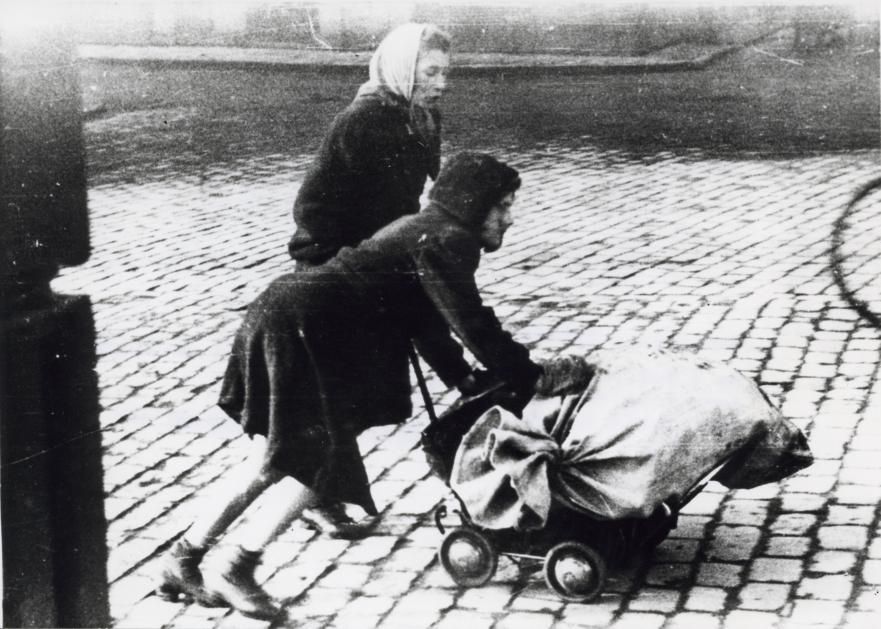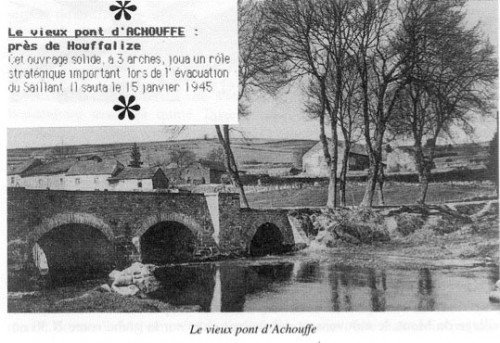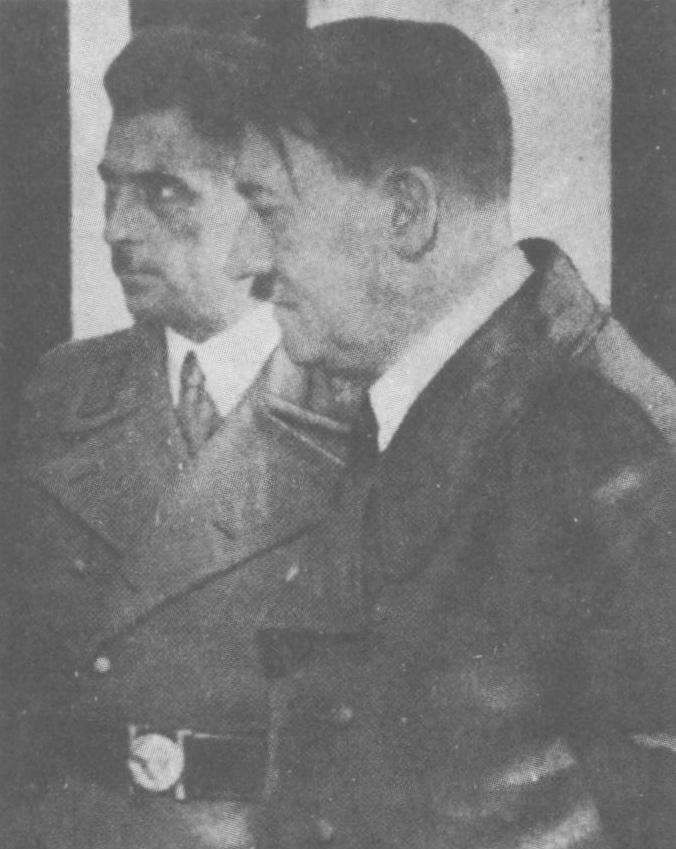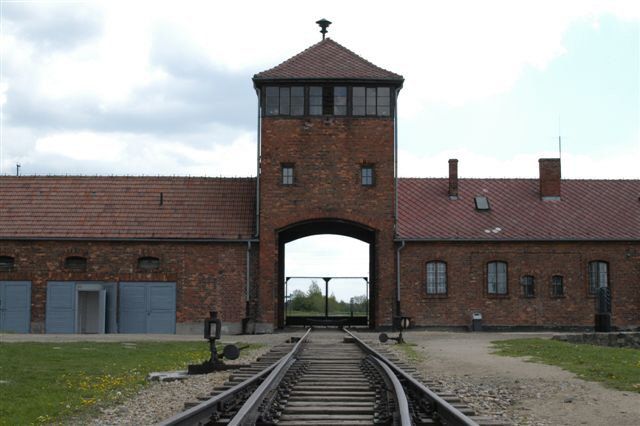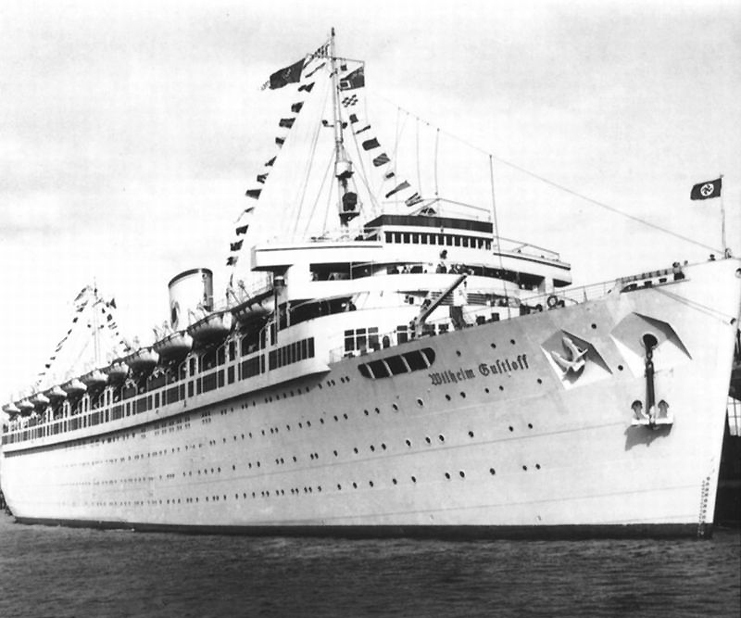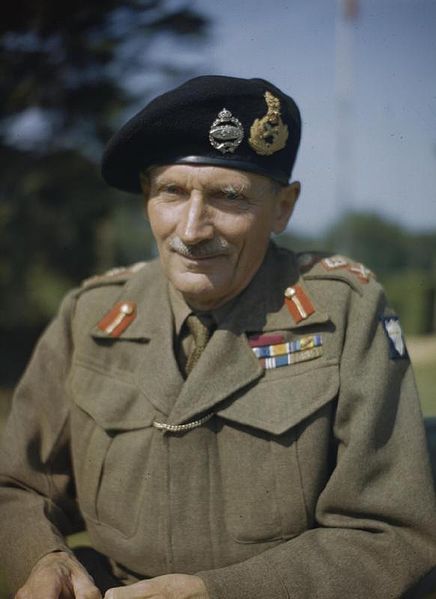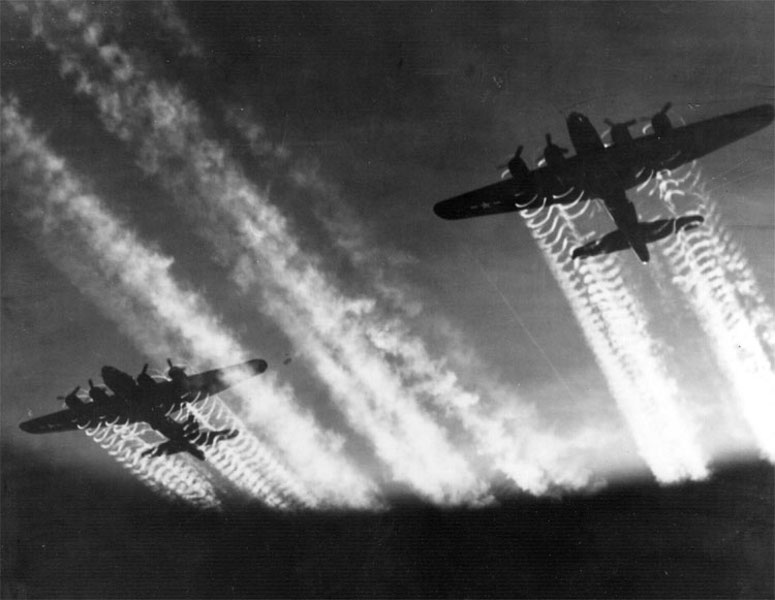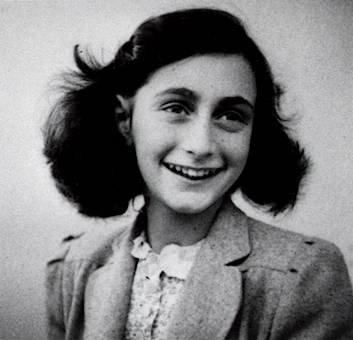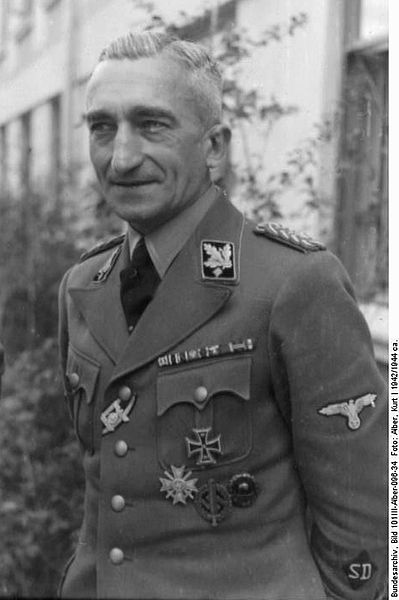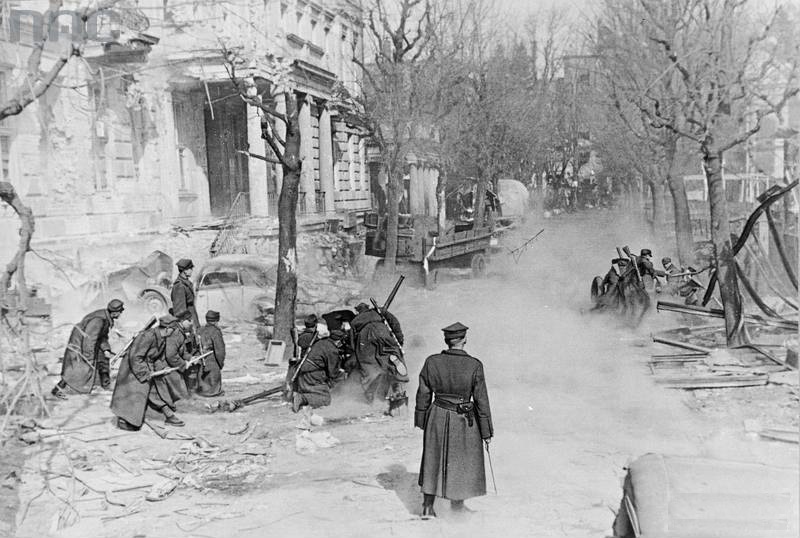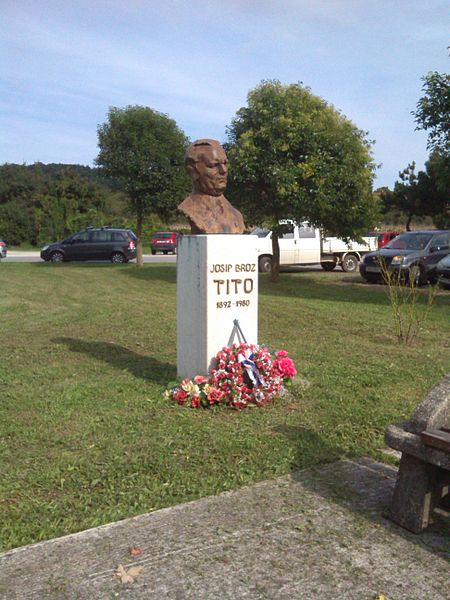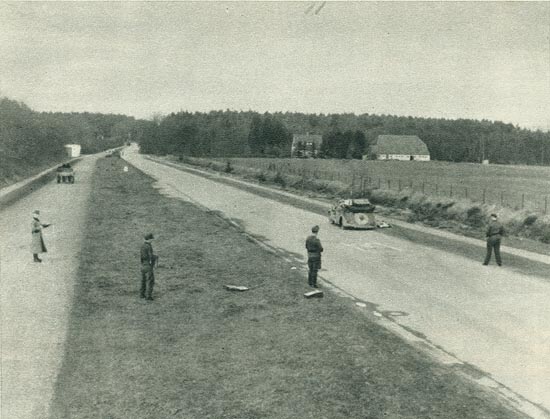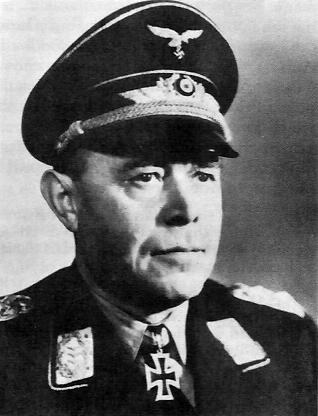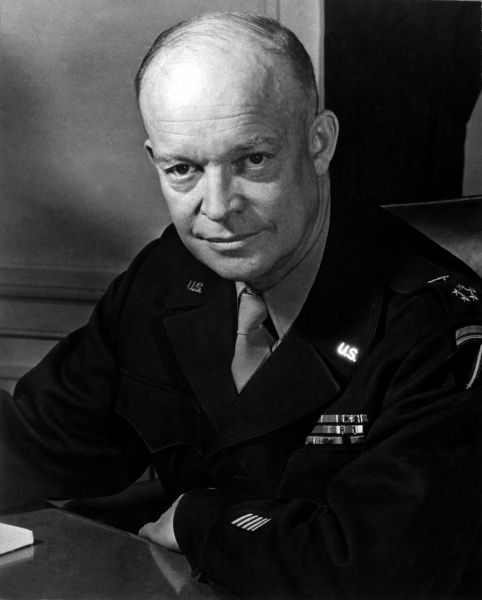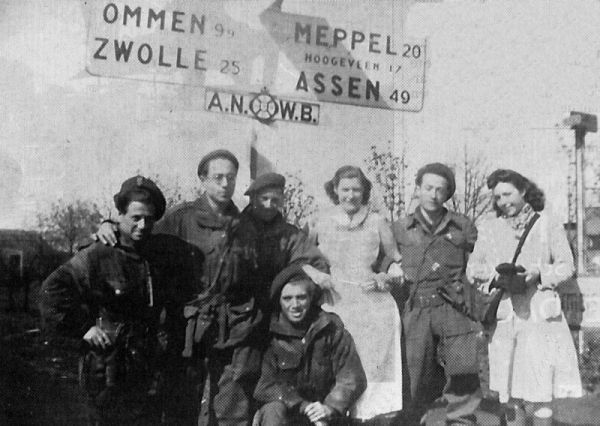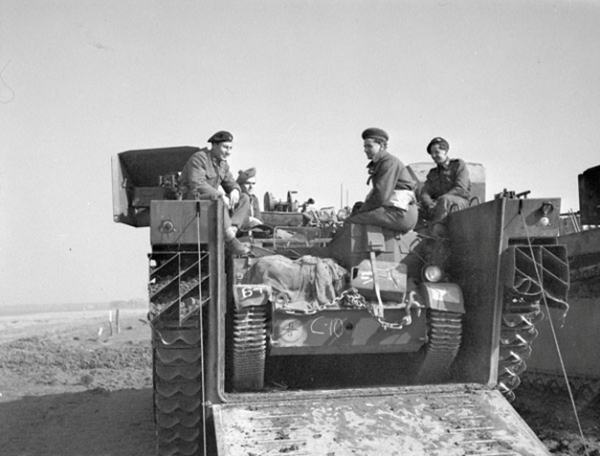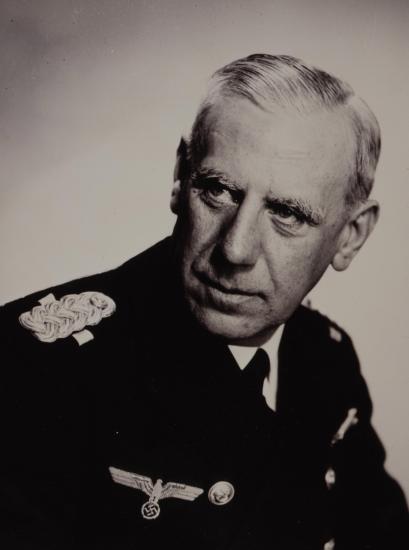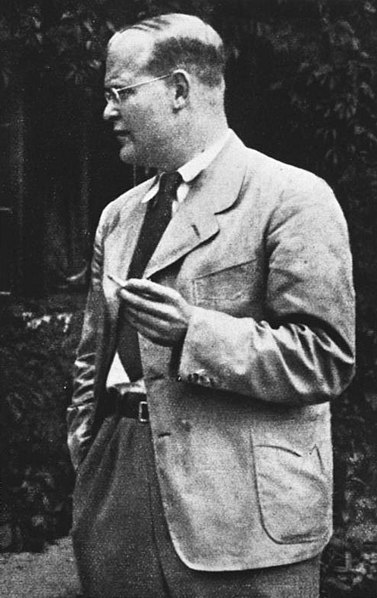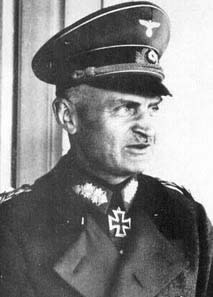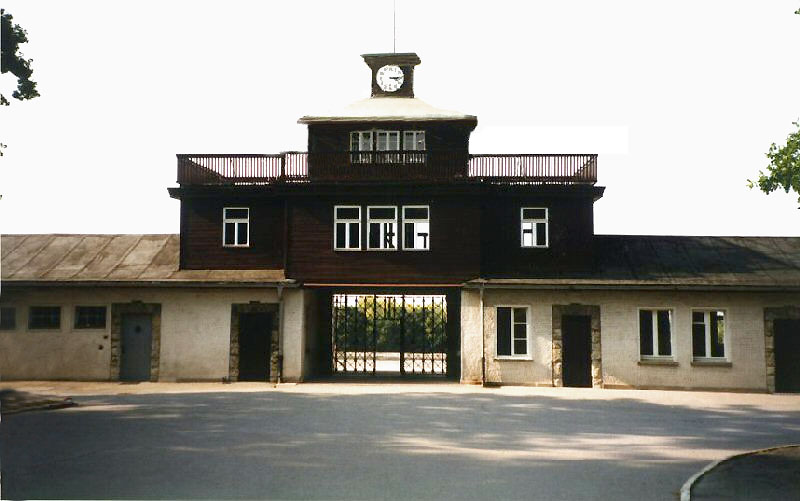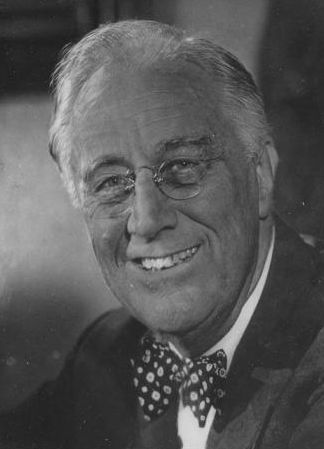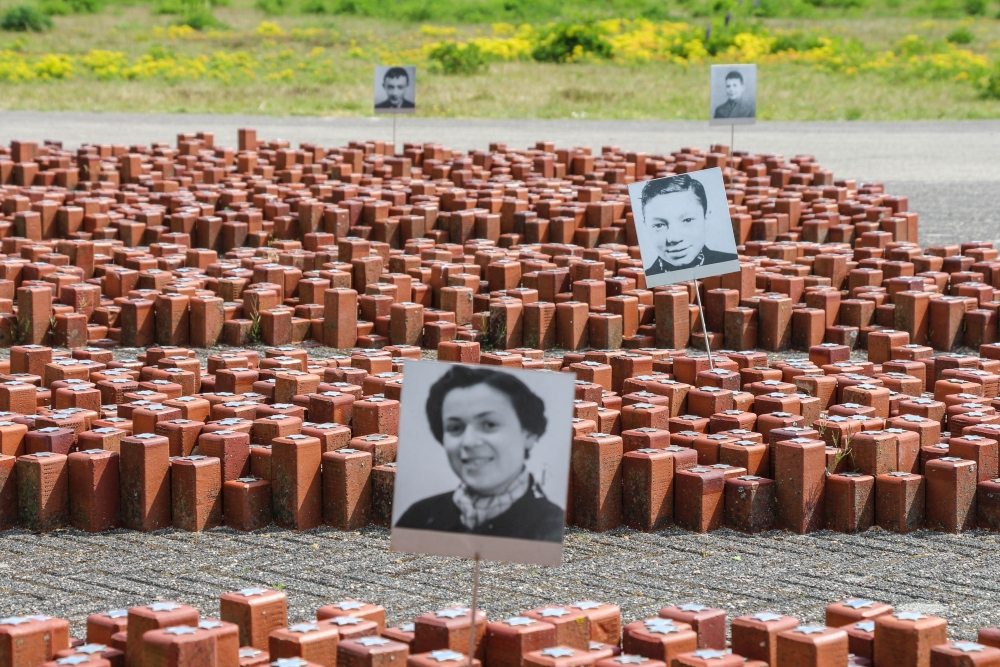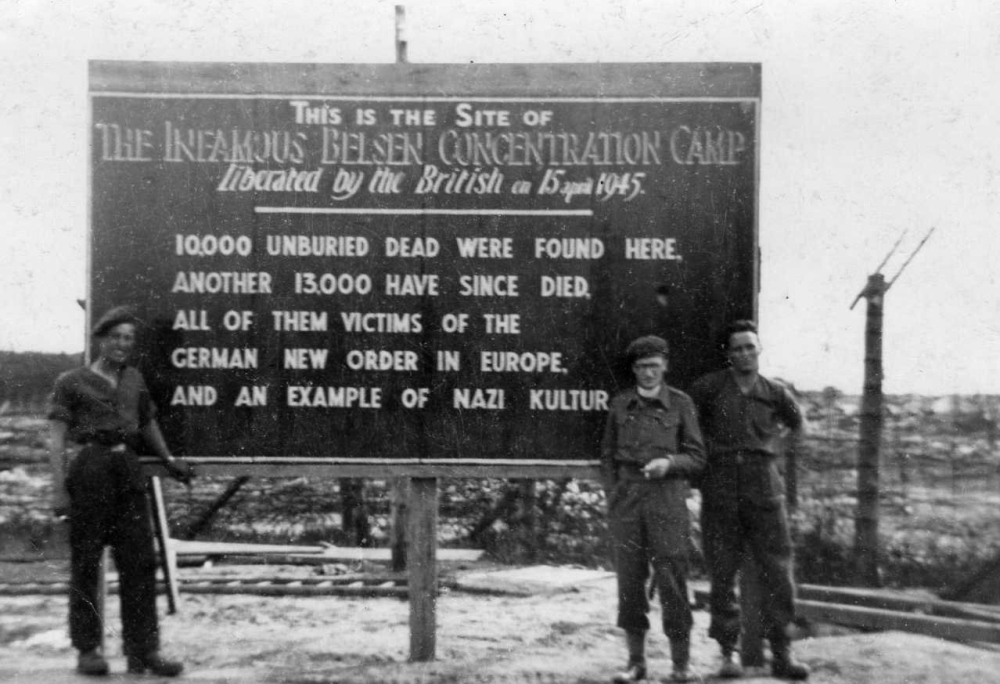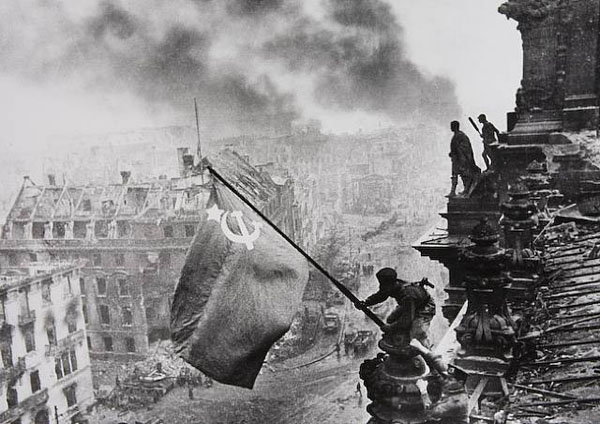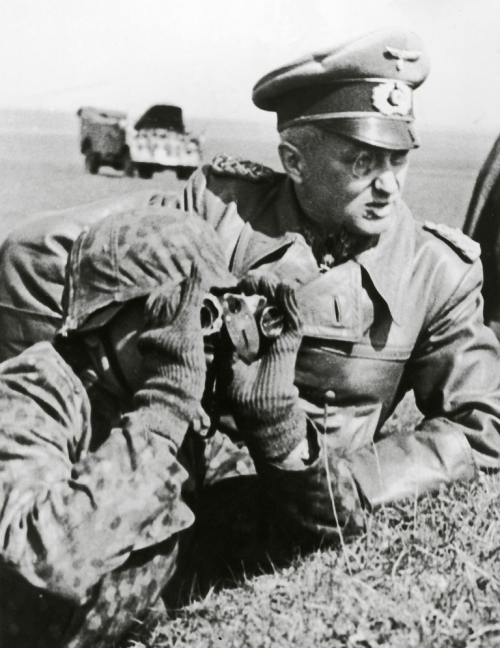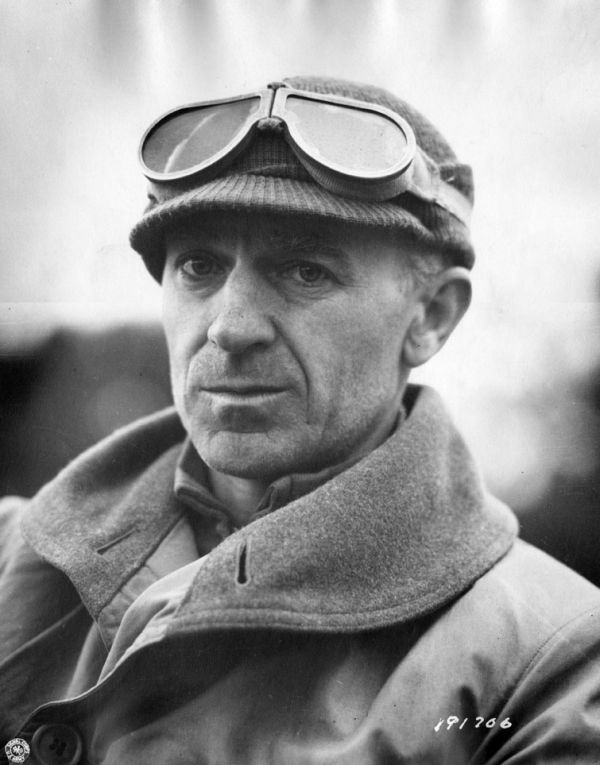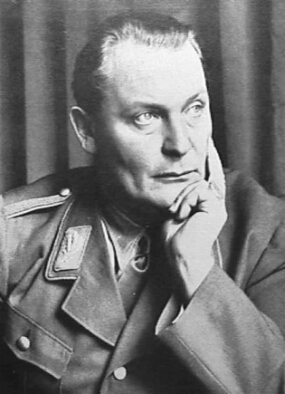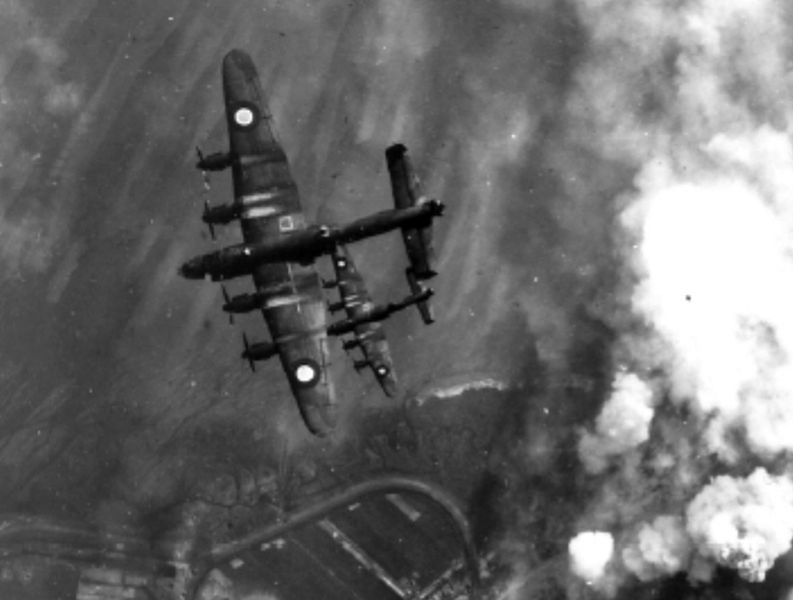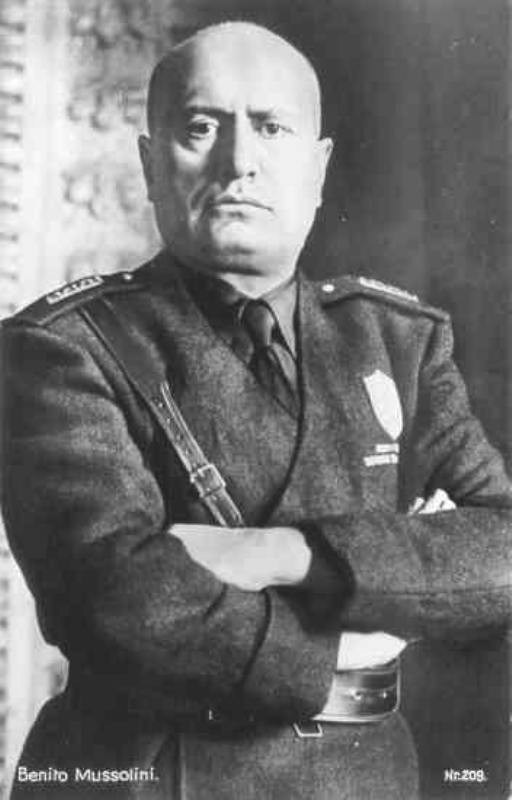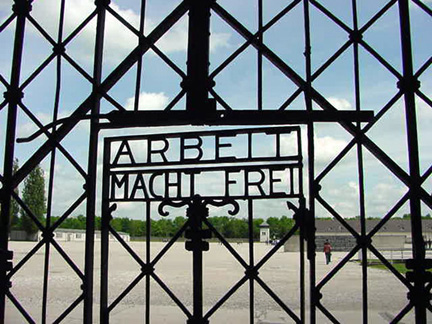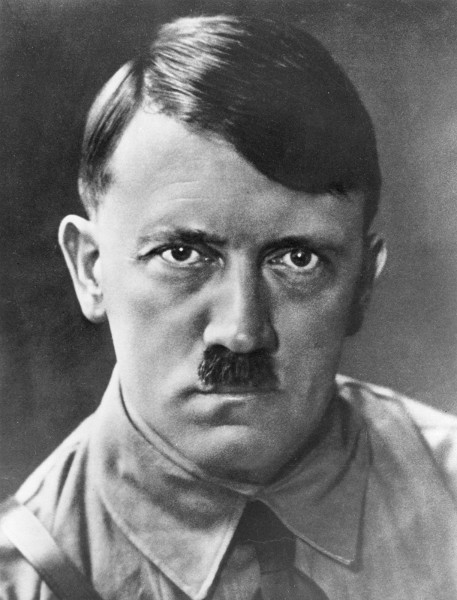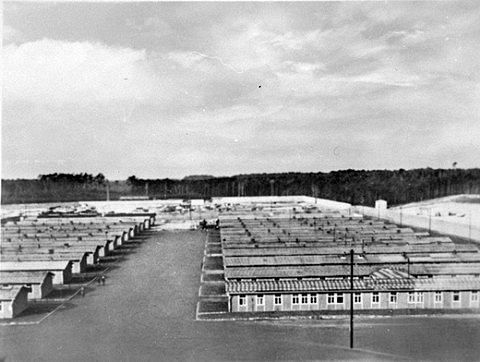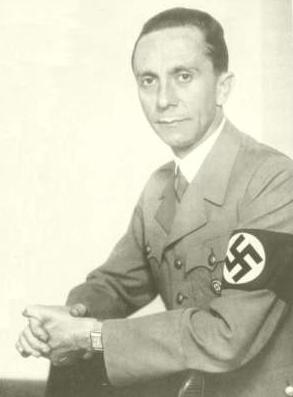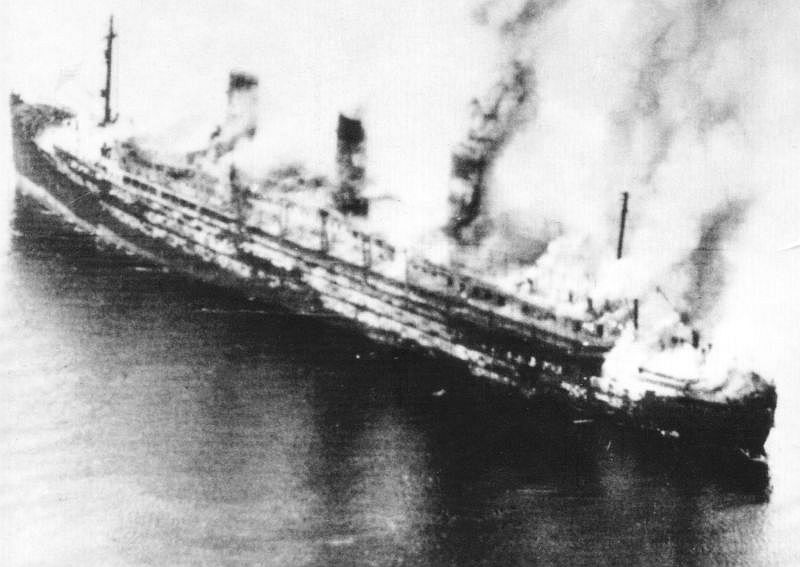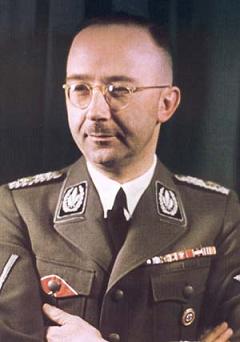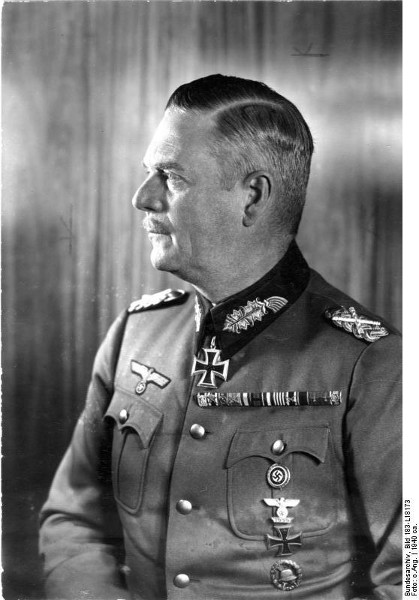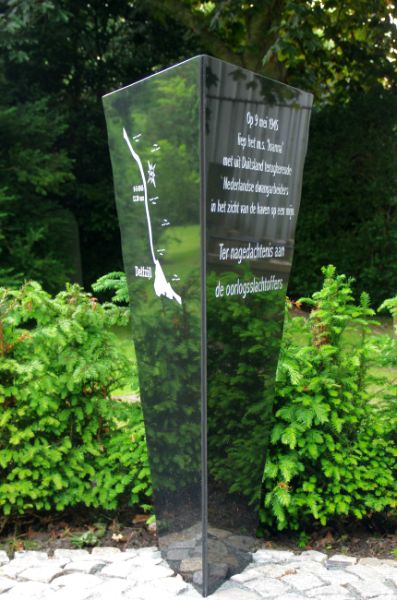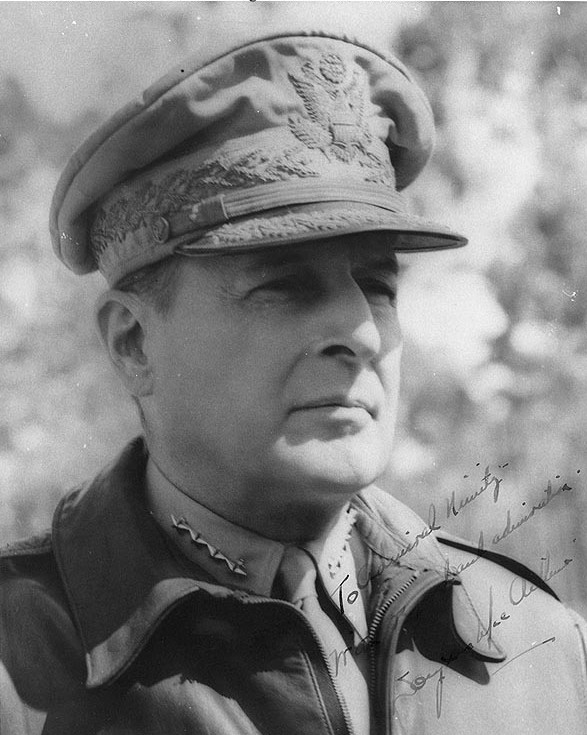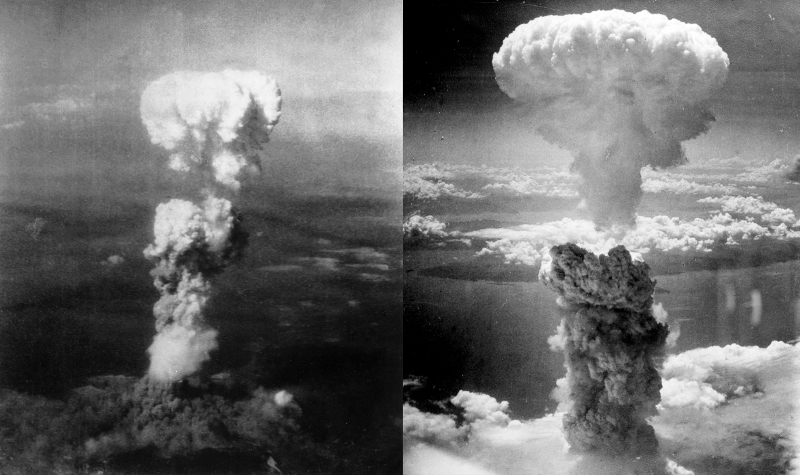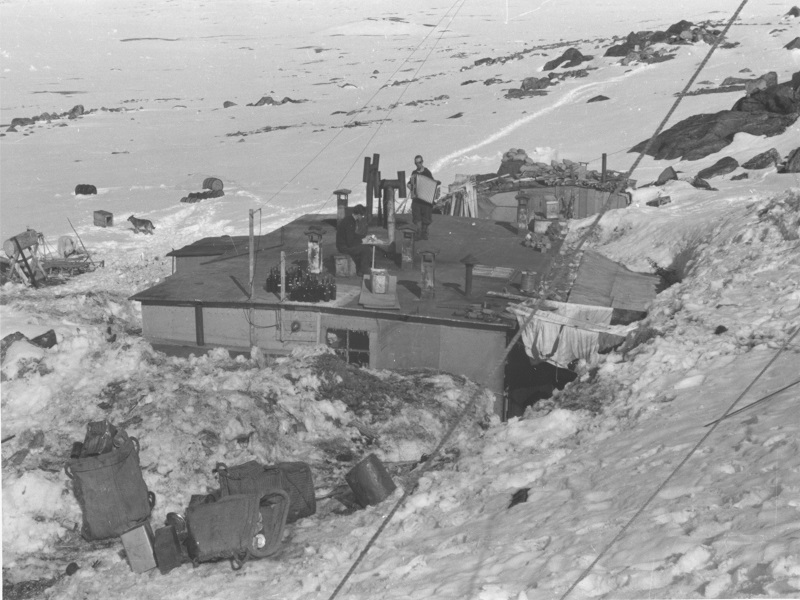-
01-01-1945: The Lublin Committee proclaims the provisional government of the Republic of Poland.
-
01-01-1945: At the beginning of the mont, the United States deliver arms to the Thai guerilla fighters.
-
01-01-1945: Unternehmen Bodenplatte: a massive air strike against Allied air fields in northern France, Belgium and the southern Netherlands. Over 400 Allied aircraft are destroyed, the Germans lose some 200, mainly by their own anti-aircraft defenses. It turns out to be a Pyrrhus victory.
-
02-01-1945: Admiral Sir Bertram Ramsay dies in a plane crash at the age of 61.
-
02-01-1945: In a session of the cabinet, Secretary Burger discusses the crisis within the administration of the liberated south: in his opinion, the chief of staff of the military government should resign.
-
02-01-1945: The Dutch government calls via Radio Oranje on the Dutch population not to cooperate in the Liese-Aktion.
-
02-01-1945: In Noord-Brabant, 15 companies of Stoottroepen have been established in the meantime.
-
02-01-1945: The British land at Akyab on the Gulf of Bengal.
-
02-01-1945: The Friday Market in Antwerp is hit by a V-2. Dozens of medieval buildings are destroyed and 29 lives are lost.
-
03-01-1945: Counter offensive by the American 1st Army near Houffalize (Belgian Ardennes).
-
03-01-1945: General Plastiras becomes head of the Greek government.
-
05-01-1945: The Soviet Union officially recognizes the provisional Polish government, established on January 1.
-
05-01-1945: The recruiting office of the Liese-Aktion on the Marnixstraat in Amsterdam is raided.
-
05-01-1945 - 05-01-1945: Period in which to report for the Lies-Aktion.
-
06-01-1945: Antwerp is hit again by a V-2. This time, the Boerentoren is hit.
-
08-01-1945: Hitler orders the German troops to withdraw to the line Dochamps – Lomgchamps.
-
09-01-1945: Prime Minister Gerbrandy calls on the Dutch population not to cooperate with the Lies-Aktion.
-
09-01-1945: The Americans land on Luzon in the Philippines.
-
11-01-1945: The leaders of the E.L.A.S. and the Greek government agree on an armistice.
-
11-01-1945: The Allies recapture St. Hubert.
-
12-01-1945 - 12-01-1945: Round ups of men in Dordrecht.
-
12-01-1945 - 12-01-1945: The Soviet Weichsel – Oder offensive is launched.
-
13-01-1945: The Germans unsuccessfully attack the Waal Bridge in Nijmegen with Biber submarines.
-
13-01-1945 - 13-01-1945: Soviet offensive in eastern Prussia.
-
14-01-1945: Hitler orders a further retreat.
-
15-01-1945: Owing to a shortage of potatoes, each inhabitant of Amsterdam is allocated 6.5 lbs of sugar beets.
-
15-01-1945: On approach to an American unit, German troops blow up the bridge over the Ruisseau de Martin-Moulin in Achouffe, which has been used in the preceding days for the evacuation of German troops and vehicles that took part in the Ardennes offensive.
-
16-01-1945: The American 1st and 3rd armies make contact again in Houffalize, a month after the start of the Ardennes offensive. The following days, the Germans are pushed back towards the Westwall.
-
17-01-1945: 60,000 inmates from Auschwitz are "evacuated" to Gross Rosen.
-
17-01-1945: Warsaw is in Soviet hands.
-
18-01-1945 - 18-01-1945: Representatives of the Soviet Union, Great Britain and the United States agree on a cease-fire with the Hungarian government in Moscow.
-
19-01-1945: Krakow and Lodz are in Soviet hands.
-
20-01-1945: Start of the evacuation of 70,000 civilians, sick and injured from the city of Breslau.
-
20-01-1945: The 3rd Byelorussian front captures Tilsit.
-
20-01-1945: The French 1st Army launches an offensive against the Colmar pocket.
-
21-01-1945: The Soviets capture Gumbinnen and Tannenberg.
-
21-01-1945 - 21-01-1945: During a bombardment by the R.A.F., the village of Montfort in Limburg is all but wiped from the map. 183 lives are lost.
-
22-01-1945: The Burma road is opened again.
-
22-01-1945: In reprisal for a raid by the Frisian resistance on a prisoner transport in which a German and a Belgian collaborator were killed, twenty men are executed in Dokkum.
-
23-01-1945: In Amsterdam, massive round ups of men are held.
-
24-01-1945: Secretary Burger is fired, the secretaries Albarda and Van den Tempel submit their resignation.
-
24-01-1945: Round ups in Leiden.
-
25-01-1945: The first "evacuation" from concentration camp Stutthof near Danzig in the direction of Lauenburg.
-
25-01-1945: In the Netherlands, the Central Kitchens lower the soup ration from 6.16 UK pints to 2.64.
-
26-01-1945: The German High Command ceases its attacks in Alsace because of fierce American resistance and because their flanks are under threat.
-
27-01-1945: The Soviets liberate the concentration camps of Auschwitz and Birkenau.
-
27-01-1945: The Soviets capture the Wolfsschanze (Wolves’ lair), Hitler’s headquarters near Rastenburg.
-
28-01-1945: The 1st Baltic front occupies Memel.
-
28-01-1945: The Soviets occupy Katowice and the industrial area in Upper-Silesia.
-
28-01-1945: The first two Swedish vessels carrying food arrive in Delfzijl. Distribution will only begin at the end of February.
-
30-01-1945: The German former cruise liner Wilhelm Gustloff, carrying over 9,000 people, mainly refugees, is sunk by the Soviet submarine S-13. An estimated 9,000 lives are lost.
-
30-01-1945: Last appeal on radio by Hitler to the German population: "Ich erwarte von jedem Deutschen, dass er jedes Opfer auf sich nimmt" (I expect every German to make any sacrifice).
-
30-01-1945: Units of the 3rd Belarusian Front close the siege ring around the city of Königsberg. The first siege of the city was to last until February 27, 1945.
-
30-01-1945: An American / Filipino unit liberates 512 Allied prisoners of war from a camp at Cabanatuan on Luzon Island.
-
31-01-1945: Eddie Slovik is executed in Sainte-Marie-aux-Mines. He is the only American soldier during World War II to be put to death for desertion.
-
01-02-1945 - 01-02-1945: In the period of February – March, the so-called Panther position (Grebbe line) is re-inforced by Soviet prisoners-of-war and Dutch slave laborers. Fortifications are also constructed near Zwolle, Deventer and Zutphen.
-
02-02-1945: Carl Gördeler, former mayor of Leipzig, is executed for his contribution to the Germnan resistance.
-
02-02-1945: Ecuador declares war on Germany and Japan.
-
03-02-1945: The 1st Byelorussian front launches an offensive against the German Oder line.
-
03-02-1945: French and American troops capture Colmar.
-
04-02-1945 - 04-02-1945: Roosevelt, Churchill and Stalin meet for talks in Yalta.
-
06-02-1945: Start of the evacuation of concentration camp Gross Rosen: inmates are deported to Dachau, Buchenwald and Mauthausen.
-
08-02-1945: Pieter Gerbrandy is appointed in London as founder of a new Dutch cabinet for the liberated part of the Netherlands.
-
08-02-1945: Montgomery launches Operation Veritable southeast of Nijmegen.
-
08-02-1945: Dr. van Mook resigns as Secretary of the Colonies.
-
08-02-1945: Paraguay declares war on Germany and Japan.
-
08-02-1945: In the liberated south, the action South helps North gets under way.
-
08-02-1945 - 08-02-1945: Soviet offensive in Lower-Silesia.
-
09-02-1945: Soviet forces capture the Polish town of Torún.
-
10-02-1945: The German passenger liner Steuben, converted to troop transport and carrying refugees mainly, is sunk by the Soviet submarine S-13. Between 3,000 and 4,000 people drown, over 600 are rescued.
-
10-02-1945: Soviet forces capture the port of Elbing (Elblag).
-
10-02-1945 - 10-02-1945: Soviet offensive in east Pomerania.
-
11-02-1945: Cleve is occupied by Allied troops. The American 3rd Army occupies Prüm.
-
12-02-1945: Walraven van Hall, one of the leaders of the Nation Support Fund is executed.
-
12-02-1945: The Greek Government and the Communist paritians make peace at the conference of Varkiza.
-
13-02-1945: Budapest is captured by units of the 2nd and 3rd Ukrainian front.
-
13-02-1945: Peru declares war on Germany and Japan.
-
13-02-1945 - 13-02-1945: Dresden is almost flattened by Allied bombardments; 25,000 lives are lost.
-
14-02-1945: Canadian and British troops reach the Rhine across from Emmerich.
-
15-02-1945: King Peter of Yugoslavia and his cabinet leave Cairo and go to Belgrade.
-
16-02-1945: The American 6th Army lands on Bataan.
-
16-02-1945: Venezuela declares war on Germany.
-
16-02-1945: Units of the 1st Ukrainian front encircle Breslau.
-
17-02-1945: The British capture Goch.
-
19-02-1945: 30,000 American Marines go ashore on Iwo Jima.
-
21-02-1945: The last pastoral appeal by Archbishop De Jong. He urges to give any help possible in the violence of war.
-
21-02-1945: The American escort carrier USS Bismarck Sea is sunk near Iwo Jima by a Japanese Kamikaze attack.
-
22-02-1945: Units of the American 5th Army capture the hills dominating the Upper Reno valley after heavy fighting.
-
23-02-1945: Uruguay and Turkey (as from March 1) declare war on Germany and Japan.
-
23-02-1945: Posen is captured.
-
24-02-1945: Egypt declares war on Germany and Japan.
-
24-02-1945: Gulik is in American hands.
-
24-02-1945 - 24-02-1945: The second Gerbrandy cabinet is installed.
-
25-02-1945: Egyptian Prime Minister Ahmed Maher Pasha is murdered right after he declared war on Germany and Japan.
-
25-02-1945: Liberation of Manila, the capital of the Philippines.
-
26-02-1945: Syria declares war on Germany and Japan.
-
27-02-1945: Lebanon declares war on Germany and Japan.
-
27-02-1945: Red Army units occupy the headquarters of the Romanian army in Bucharest.
-
27-02-1945: The Soviet Union demands the resignation of the Rodescu government from King Michael of Romania.
-
27-02-1945: The Canadians reach the Rhine north of Calcar.
-
27-02-1945: Hitler does not allow Feldmarschal von Rundstedt to order a general withdrawal beyond the Rhine.
-
27-02-1945: The Red Army lifts the first siege of Königsberg because of the fierce German resistance and in order to eliminate German pockets of resistance elsewhere.
-
01-03-1945: Anne Frank dies of typhus in Bergen-Belsen at the beginning of March (her exact date of death is unknown).
-
01-03-1945: Iran declares war on Japan, Saudi-Arabia declares war on Germany and Japan.
-
01-03-1945: Roermond and Venlo are liberated.
-
01-03-1945: In March, a number of members of the N.S.B., who fled to Germany previously, return to the north of the Netherlands.
-
01-03-1945: As a result of the poor food situation in the west of the Netherlands, the mortality rate will increase sharply this month. In men over 70, the number of deaths is four times higher than normal.
-
02-03-1945: Trier is liberated by units of the American 3rd Army.
-
02-03-1945: The Filipino island of Lubang is recaptured by the Americans. A number of Japanese soldiers stationed on the island refuse to surrender and start a guerrilla fight. One of them, Hiroo Onoda, does not surrender until March 10, 1974.
-
02-03-1945: The Volksgerichtshof in Berlin condemns Arthur Nebe, chief of the Reichskriminalpolizeiamt, to death for his involvement in the attack on Hitler on July 20, 1944. He is hanged the following day.
-
03-03-1945: The Bezuidenhout in The Hague is severely damaged by stray bombs during an attack by the R.A.F. Over 500 lives are lost.
-
04-03-1945: Finland declares war on Germany.
-
04-03-1945: Units of the 1st Polish Army (falling under the Red Army) lay siege to the German port city of Kolberg.
-
05-03-1945: The American 7th Army captures Cologne.
-
05-03-1945: Marshal Tito will form a new Yugoslav government. The King has accepted a regency.
-
05-03-1945: Last raid by German commandoes on bunker I near Stavenisse.
-
06-03-1945: Unternehmen Frühlingserwachen: last German offensive to protect the Hungarian oilfields.
-
06-03-1945: In Romania, a new government headed by Dr. Petru Groza, leader of the National Democratic Front, is formed under Soviet pressure.
-
07-03-1945: The 9th Armored Division of the American 1st Army captures the undamaged railway bridge across the Rhine at Remagen by chance.
-
07-03-1945: In Yugoslavia, Marshal Tito forms a new government.
-
07-03-1945: Near the "Woeste Hoeve" between Apeldoorn and Arnhem, an inadvertent attack is carried out on Höhere SS- und Polizeiführer Rauter. Over 200 men are executed in reprisal, 117 of them on the spot itself.
-
08-03-1945: Xanten is occupied by the British.
-
08-03-1945: Secret negotiations about a possible capitulation between SS General Wolff, head of the German police in Italy and Allen Dulles, chief of the American Office of Strategic Services in Zürich, Switzerland.
-
09-03-1945: Bonn is captured by the American 1st Army.
-
11-03-1945: Oberbefehlshaber West, Gerd von Rundstedt is replaced by Generalfeldmarschall Albert Kesselring.
-
12-03-1945: The Communist Party in Italy calls for an armed revolt.
-
12-03-1945: In the Weteringplantsoen in Amsterdam, 36 men are executed.
-
12-03-1945 - 12-03-1945: Queen Wilhelmina pays a series of visits to Zeeland, Noord-Brabant and Limburg.
-
14-03-1945: Round up in Leeuwarden.
-
15-03-1945: In Almelo, 500 men are ordered by the commander of the Wehrmacht to report for forced labor.
-
16-03-1945 - 16-03-1945: Soviet offensive against Vienna.
-
17-03-1945: The American 3rd Army occupies Coblenz.
-
17-03-1945: The Soviet government sharply rejects the Anglo-American protest against her intervention in Romania.
-
18-03-1945: After a heavy battle, the city of Kolberg is captured by Polish troops of the Red Army. In the preceding days, most civilians and German soldiers have been evacuated across the Baltic Sea.
-
19-03-1945: The Soviet Union renounces the Turkish-Russian treaty of 1925.
-
19-03-1945: Adolf Hitler issues the Nero Order, which means that all infrastructure that could be of use to the Allies must be destroyed.
-
19-03-1945 - 19-03-1945: In Moscow, representatives of the Czechoslavakian Coomunist Party and the Slovakian National Council conduct negotiations with the Czech government in London.
-
21-03-1945: Eighteen Mosquitos from No 140 Wing Group attack the Gestapo headquarters in Copenhagen.
-
22-03-1945: Enschede is hit by a bombardment by the 8th Air Force. 65 lives are lost.
-
22-03-1945: Units of the American 3rd Army cross the Rhine near Oppenheim.
-
23-03-1945: Nijverdal is hit by a bombardment by the 8th Air Force. 72 lives are lost.
-
23-03-1945: Churchill pays a visit to British headquarters in Venlo.
-
23-03-1945 - 23-03-1945: Operation Varsity: British and Candian forces cross the Rhine near Wesel, preceeded by a massive airborne operation in the area east of the Rhine.
-
24-03-1945: Goor is hit by a bombardment by the 8th Air Force. 82 lives are lost.
-
24-03-1945: Haaksbergen is hit by a bombardment by the 8th Air Force. 75 lives are lost.
-
25-03-1945: The Americans break out of their bridgehead at Remagen. 3rd Army captures Darmstadt. The Americans cross the Rhine at Boppard.
-
26-03-1945: Iwo Jima is officially declared safe, ending the battle.
-
27-03-1945: Argentina declares war on Germany and Japan.
-
27-03-1945: Failed American raid on the German prisoner-of-war camp Oflag XXX-B in Hammelburg.
-
28-03-1945: Eisenhower changes his strategy: he wants to make contact with Soviet units in the region Leipzig- Dresden as soon as possible.
-
28-03-1945: The Soviets occupy Gdynia (Gotenhafen).
-
29-03-1945: The last V-1 is shot down over Great Britain, it marks the end of the V-1 offensive.
-
29-03-1945: The American 7th Army occupies Mannheim, 3rd Army occupies Wiesbaden and Frankfort.
-
30-03-1945: Units of the 2nd Byelorussian front and Polish units capture the Baltic port of Danzig.
-
30-03-1945: Allied troops move into the Achterhoek (Gelderland) and liberate Aalten and Varsseveld.
-
31-03-1945: Allied troops liberate Winterswijk, Lichtenvoorde and Groenlo in the Achterhoek.
-
31-03-1945 - 31-03-1945: At the end of March and early April, preparations are made for Operation Amherst, the deployment of parachutist of the 2nd and 3rd S.A.S. Régiment de Chasseurs in cooperation with the Canadian 2nd Division in the northeast of the Netherlands.
-
01-04-1945: Beginning of the battle of Okinawa.
-
01-04-1945: Doetinchem, Borculo, Eibergen and Enschede are liberated.
-
02-04-1945: Lochem, Wehl and Zevenaar are liberated.
-
03-04-1945: Hengelo, Delden and Borne are liberated.
-
04-04-1945: The last German troops withdraw from Hungary.
-
05-04-1945: Almelo, Vriezenveen and Goor are liberated.
-
05-04-1945: Canadian troops have reached Coevorden.
-
05-04-1945 - 05-04-1945: Heavy fighting in Zutphen.
-
06-04-1945: Heeresgruppe H is disbanded. New high command Northwest, directly subordnate to O.K.W. General Blaskowitz is put in charge of 25. Armee. General Christainsen is stripped of his authorities.
-
06-04-1945: The prisoner-of-war camp near Hammelburg in Niederfranken in Bavaria (consiting of Oflaf XIIIB for Allied officers and Stalg XIIIC for N.C.O.‘s and lower ranks) is liberated by the U.S. 14th Armored Division, 10 days after the failed raid on the camp by Task Force Baum.
-
06-04-1945 - 06-04-1945: The 3rd Byelorussian front launches its second offensive against Königsberg.
-
06-04-1945 - 06-04-1945: Revolt of 800 Wehrmacht soldiers from Georgia on Texel.
-
07-04-1945: The Japanese battleship Yamato is sunk by American carrier planes, 3,055 crew members are killed.
-
07-04-1945 - 07-04-1945: Operation Amherst: In the triangle Groningen – Coevorden – Zwolle 46 sticks of French SAS paratroopers are dropped over this area.
-
09-04-1945: Execution of Wilhelm Canaris and Hans Oster, officers of the Abwehr, for their involvement in the plot against Hitler on July 20 1944.
-
09-04-1945: After an imprisonment of two years, Dietrich Bonhoeffer, pastor of the Bekennende Kirche, is hanged.
-
09-04-1945: Generaloberst Otto Lasch signs the capitulation of the German garrison in Königsberg. 92,000 German soldiers are taken prisoner.
-
10-04-1945: Canadian troops capture Deventer; the Germans blow the bridges on the Ijssel.
-
10-04-1945: General Blaskowitz is appointed commander of Festung Holland.
-
10-04-1945: Emmen is liberated by the Polish 1st Armored Division.
-
10-04-1945: The entire city of Königsberg is captured by the Red Army.
-
11-04-1945: The American 9th Army crosses the Elbe near Magdeburg.
-
11-04-1945: Near Gardelegen, 1,100 deportees are herded into a shed which is subsequently set on fire by the SS.
-
11-04-1945: Operation Cannonshot: Canadian troops cross the IJssel near Gorssel between Deventer and Zutphen.
-
12-04-1945: KZ Buchenwald is liberated.
-
12-04-1945: President Roosevelt of the U.S. passes away and is succeeded by Harry Truman.
-
12-04-1945: Canadian troops liberate camp Westerbork.
-
12-04-1945: Operation Anger: Canadian and British troops cross the Ijssel near Westervoort and attasck Arnhem.
-
12-04-1945: Negotiations between the BS and Seyss-Inquart. Seyss-Inquart refuses to capitulate before Germany does. He is willing though to resume the delivery of food provided the Allies halt at the Grebbeberg and the resistance suspends its actions.
-
12-04-1945: Harry Truman is sworn in as the new president of the United States.
-
13-04-1945: Tokyo is largely reduced to rubble in Allied bombardments.
-
13-04-1945: Chili declares war on Germany and Japan.
-
13-04-1945: The Committee of Trustees submits the offer by Seyss-Inquart to the Dutch government.
-
13-04-1945: Meppel, Assen, Anlo, Eelde, Gasselte, Gieten, Havelte, Nijerveen, Roden, Ruinerwold, Smilde, Vries, Zuidlaren, Nieuweschans, Veendam and Wildervank are liberated.
-
13-04-1945: The Red Army captures Vienna.
-
14-04-1945: Arnhem, Zwolle and Staphorst are liberated.
-
15-04-1945: Canadian and British troops liberate Bergen-Belsen.
-
15-04-1945: Meeting between Prime Minister Gerbrandy and Churchill on the situation in the western Netherlands: "We have them in our grip".
-
16-04-1945: The German troops, charged with the defense of Groningen surrender.
-
16-04-1945: The German cargo vessel Goya carrying over 7,000 people, mainly refugees is sunk by the Soviet submarine L-3 in the Baltic. Some 170 people are rescued. An estimated 7,000 lives are lost.
-
16-04-1945: Doesburg is liberated. The day before, retreating German troops blow the Martini tower, the windmill and the water tower.
-
16-04-1945: The Red Army unleashes its attack on Berlin from the south, east and north.
-
17-04-1945: Generalfeldmarschal Walter Model, the commander of Heeresgruppe B, which was surrounded in the Ruhr area, gives the soldiers the choice to surrender or join a fighting unit. 325,000 men surrender.
-
17-04-1945: The Wieringermeerdyke is blown in two places by the Germans. Inhabitants are evacuated.
-
17-04-1945: Apeldoorn and Harlingen are liberated.
-
18-04-1945: The famous American war score respondent Ernie Pyle is killed on the Japanese island of Iejima as a result of enemy gunfire.
-
19-04-1945: Conquest of Magdeburg by the American 9th Army; other American units cross the border into Czechoslovakia.
-
20-04-1945: Great Britain recognizes the new Yugoslav government headed by Tito.
-
20-04-1945: Nuremberg falls into Allied hands.
-
21-04-1945: The Soviets take Berlin while the Americans enter Nuremberg.
-
21-04-1945: Stuttgart is captured by the Allies.
-
21-04-1945: Generalfeldmarschall Walter Model commits suicide near Duisburg.
-
22-04-1945: Concentration camp Sachsenhausen is liberated.
-
23-04-1945: Hitler strips Göring of all his functions and issues his arrest warrant by SS officers.
-
25-04-1945: American and Soviet troops meet at Torgau on the Elbe. Germany is cut in half.
-
25-04-1945: The British reach the Grebbe line.
-
25-04-1945: Air raid on the German island of Wangerooge by 480 RAF bombers. There were 279 deaths, including 48 Dutch forced laborers. This is the last major attack by the RAF on a German ground target during the Second World War.
-
26-04-1945: The Allies capture Bremen.
-
26-04-1945: The major Baltic port of Pillau falls in the hands of the Red Army.
-
27-04-1945: American units move into Genoa.
-
28-04-1945: Mussolini is arrested by Italian partisans and hanged upside down from a petrol station.
-
28-04-1945: The United States recognise the new Yugoslav government headed by Tito.
-
29-04-1945: Adolf Hitler marries his mistress Eva Braun and dictates his political will and testament, naming Admiral Karl Dönitz his successor, Joseph Goebbels is named Reichskanzler and Martin Bormann becomes Party Chancellor.
-
29-04-1945: British forces capture Venice, Mestre, Padua, Vicenze and Como. American units advance into Milan.
-
29-04-1945: British bombers launch the first food drops over Ypenburg air base near The Hague. Operation Manna lasts nine days.
-
29-04-1945: The Committee for the Preparation for Independence of the Dutch East Indies is established.
-
29-04-1945: Concentration camp Dachau is liberated by American troops.
-
29-04-1945: The Soviet Union recognizes the new Yugoslav government headed by Tito.
-
30-04-1945: In his bunker in Berlin, Adolf Hitler and Eva Braun commit suicide.
-
30-04-1945: Liberation of concentration camp Ravensbrück.
-
01-05-1945: A new German government is established, headed by Grossadmiral Dönitz.
-
01-05-1945: The German forces in Italy surrender.
-
01-05-1945: Joseph Goebbels and his wife Magda commit suicide after having poisoned their children first.
-
01-05-1945: Radio Hamburg announces Hitler’s death.
-
02-05-1945: The last defenders of Berlin lay down their arms.
-
03-05-1945: Allied aircraft sink the German vessels Cap Arcona, Thielbeck and Deutschland in the Bight of Lübeck. The vessels carry inmates from concentration camp Neuengamme. Survivors who make it ashore are shot by the SS. An estimated 7,000 to 8,000 lives are lost.
-
03-05-1945: During the San Francisco Conference, the four Allied Powers decide that a formal trial against the high Nazis will be conducted by an international military tribunal. The details will be discussed at a conference in London (see also 8 August).
-
04-05-1945: On the Lüneburgerheide in Germany, Fieldmarshal Montgomery accepts the capitulation of all German forces in northwestern Europe.
-
05-05-1945: Liberation of camp Mauthausen.
-
05-05-1945: In Hotel De Wereld in Wageningen the capitulation of the German forces in the Netherlands is signed by General Blaskowitz on behalf of Germany and General Foulkes on behalf of the Allies.
-
05-05-1945: In Paisley, Oregon, six people are killed as a result of a Japanese Fu-Go fire balloon. They are the only fatalities on the American mainland during World War II as a result of enemy action.
-
06-05-1945: SS-Reichsführer Heinrich Himmler is stripped of all his functions.
-
06-05-1945: After an 80-day siege, General der Infanterie Hermann Niehoff surrenders the city of Breslau to the Red Army.
-
07-05-1945: General Jodl signs the unconditional surrender of Germany.
-
07-05-1945: The Red Army liberates concentration camp Theresienstadt with 25,000 inmates.
-
07-05-1945: After skirmishes with the Domestic Forces, a unit of the Kriegsmarine opens fire on a crowd of civilians on Dam Square in Amsterdam from De Grote Club. 32 people are killed.
-
08-05-1945: Amsterdam is liberated by the Allies.
-
08-05-1945: At the instigation of the Soviet Union, a second ceremony will take place in Berlin, where Generalfeldmarschal Wilhelm Keitel will sign a ratification of the capitulation of the German forces previously agreed in Reims.
-
09-05-1945: The Dutch inland vessel Joanna with repatriated Dutch workers from the island of Wangerooge on board walks on a mine in front of the harbor mouth of Delfzijl. 39 people died.
-
22-05-1945: Heinrich Himmler is arrested by British soldiers near Hamburg.
-
23-05-1945: The members of the Dönitz government are arrested.
-
23-05-1945: Himmler commits suicide by crushing a cyanide capsule.
-
05-06-1945: The four major powers decide to split Germany and Berlin in four zones of occupation.
-
06-06-1945: Brazil declares war on Japan.
-
22-06-1945: The last Japanese units on Okinawa lay down their arms.
-
05-07-1945: MacArthur declares the entire Philippines is liberated. However, the battle continues afterwards and the Japanese troops on Luzon only capitulate on 02-09-1945.
-
08-07-1945 - 08-07-1945: The Dutch submarine Hr. Ms. O 19 runs on the Ladd Reef in the South China Sea. Despite frantic attempts by the American submarine USS Cod, the O 19 is unable to break free. The crew will leave the ship on July 10 and board the USS Cod. The O 19 is destroyed by explosive charges and torpedoes fired.
-
14-07-1945: Italy declares war on Japan.
-
16-07-1945: New Mexico, the first nuclear bomb is tested by the Americans.
-
21-07-1945: President Truman of the United States decides to deploy the nuclear bomb against Japan.
-
26-07-1945: Attlee succeeds Churchill as Prime Minister.
-
26-07-1945: In the declaration of Potsdam, the Allies demand unconditional surrender by Japan.
-
06-08-1945: Enola Gay drops the first nuclear bomb over Hiroshima, resulting in tens of thousands of casualties.
-
08-08-1945: The Soviet Union declares war on Japan: Soviet forces attack the Kwantung Army in Manchuria and North Korea.
-
08-08-1945: The Four Allied Powers conclude the London Agreement, which provides for the trial of the top Nazi criminals. The Charter of the International Military Tribunal is part of this agreement.
-
09-08-1945: The second nuclear bomb is dropped over Nagasaki, again resulting in thens of thousands of casualties.
-
15-08-1945: VJ Day: Japan surrenders unconditionally.
-
25-08-1945: Montgomery announces the creation of a British Army on the Rhine.
-
02-09-1945: Japan signs the capitulation agreement aboard the U.S.S. Missouri in the Bay of Tokyo.
-
03-09-1945: Following the Japanese capitulation, Stalin issues Order No. 373.
-
04-09-1945: The Germans who took part in Operation Haudegen surrender to the crew of a Norwegian naval vessel. This makes them the last German soldiers in Europe to officially capitulate.
-
06-10-1945: The concept of the indictment of the high Nazis to be tried in Nuremberg is officially established in Berlin (see also October 18).
-
18-10-1945: The Nazis who will face trial at the Nuremberg trial are officially summoned (see also November 20).
-
20-11-1945: Beginning of the International Military Tribunal in Nuremberg. 22 high ranking Nazis stand trial, 12 of them are sentenced to death (one in absentia), seven are sentenced to jail terms ranging from life to ten years and three are acquitted.
